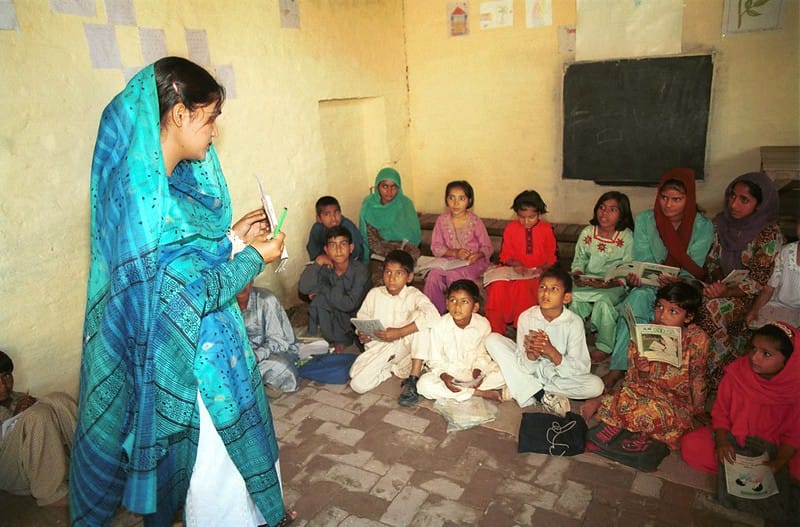In a world where human rights have taken a frontline in the governing principle of daily lives, why has education fallen behind? That too in a country whose moral code has definitive command towards its acquisition? Islam, the state religion of Pakistan, does not only encourage education, but makes it obligatory upon Muslims. The Holy prophet Muhammad (PBUH) said; ‘The search for knowledge is a duty of every Muslim, male and female’. This means that abandoning education is not only undesirable, but constitutes a sin.
Pakistan has a literacy rate of 60% by the basic definition of being able to read and write. This means out of 220 million people, about 132 million are able to write their name. However, further education above this basic limit constitutes to less than half of the total literate population, with the female gender especially lacking in this area. According to a UNESCO report in 2019, out of 50 million school-aged children, only 37% were able to attend school, leaving most of the minors never having to have experienced school life.
The reason behind this you ask?
Well, for starters, there isn’t just one; a plethora of problems lace the rural setup of Pakistan. A good example of understanding this is by looking into the affairs of a community in Punjab, brought into light by mass media. When asked, why the children working in car repair shops and restaurants were not going to school, the most common answer given was related to poverty. ‘I do want to go to school’, a child cried out while embracing his brother, saying that the only reason they could not was because there would be no one left to make ends meet.
The rapid increase population, urban migration into crowded areas, unemployment, and cultural restraints are only few in a sea of reasons that is preventing growth in literacy rates. In the situation of women, they receive special backlash for acquiring education, even in households that are well off, as it goes against the present cultural norms of keeping women at home. Moreover, to make matters worse, negligence by local and national authorities towards this problem has left even the small number of public school that are present, inadequate for acquiring quality education.
The probability of any plan working depends on the extent an institution is willing to contribute in executing the project. Unfortunately, in Pakistan, this willingness does not extend to a limit that would make smooth progression. Political instability, as well as the lack of interest in funding the educational department, has left many dreams and hopes in the dark. However, all is not lost, as change can be introduced any time, and it is never too late to take a turn for the better.
Change in society has to be brought from the roots up. Families in both rural and urban setup should be first made aware about the importance of education for both men and women. It should be made clear that education is a right to which one cannot be oblivious. Next, the government should allocate adequate amount of funds for establishing new educational institutes throughout the country, as well as making sure the already established schools have a quality of education that is up to international standards. Teachers should be given proper training and their qualifications in allocated subjects should be considered before hiring them. Further support should be provided by the government to those families which cannot afford to have children sent to school, making sure their future is secure in the long run.
In the end, having a 100% literacy rate in Pakistan may seem nothing more than a lucid dream. However, with a concrete desire for alleviating the conditions of those less fortunate than us, along with definite action towards that goal, one can truly make it happen. Recently, student led youth organizations aiming to make a difference for the illiterate have shown steady progress, encouraging everyone with the means to do the same. Hence, whether someone believes in it or not, collective action is the only way Pakistan can hope to fix the problems that ravage its educational sector.

